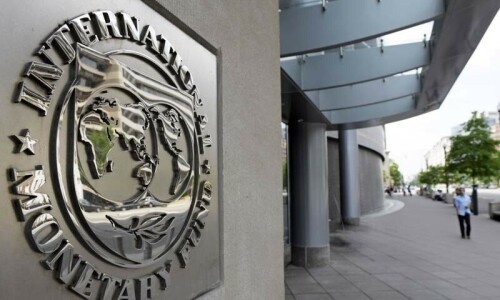HYDERABAD: Indian authorities issued an alert, shut schools and cancelled trains in parts of the country on Friday as rescue teams braced for a tropical storm brewing in the Bay of Bengal.
The storm is expected to hit the coastline of the southern state of Andhra Pradesh on Saturday, then enter eastern Odisha and West Bengal states on Sunday with wind speeds of up to 100 kilometres per hour, Indian Meteorological Department chief Mrutyunjay Mohapatra said.
Scientists say severe storms are becoming more frequent in India and changing climate patterns have caused them to become more intense.
Andhra Pradesh state relief commissioner Kanna Babu said fishing boats in both states have been ordered to return to harbour and thousands of rescue and relief teams are fanning out for recovery operations.
Mohapatra also said that offshore oil drilling platforms in the region have been advised to suspend activities on Saturday and Sunday.
The storm is expected to trigger heavy to very heavy rain over parts of Andhra Pradesh. On Friday, it was around 650 kilometres from Visakhapatnam, a key port city.
In May, two storms hit India within 10 days, with Cyclone Tauktae killing at least 140 people across western states. Nearly 70 of the victims were on a barge that ripped free of its anchors and sank off Mumbais coast.
In May last year, nearly 100 people died in Cyclone Amphan, the most powerful storm to hit eastern India in more than a decade. It flattened villages, destroyed farms and left millions without power in eastern India and Bangladesh.
Some of the deadliest tropical cyclones on record have occurred in the Bay of Bengal. A 1999 super cyclone killed around 10,000 people and devastated large parts of Odisha. Due to improved forecasts and better coordinated disaster management, the death toll from Cyclone Phailin, an equally intense storm that hit in 2013, was less than 50, according to the World Meteorological Organisation.
Published in Dawn, December 4th, 2021











































